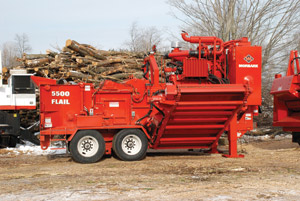September 2010
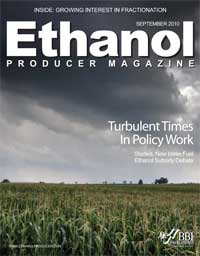 View Full Print Edition
View Full Print EditionBusiness Briefs
Columns

Recent Legal Challenges to EPA's RFS2
By Andrew Anderson and Jess Phelps
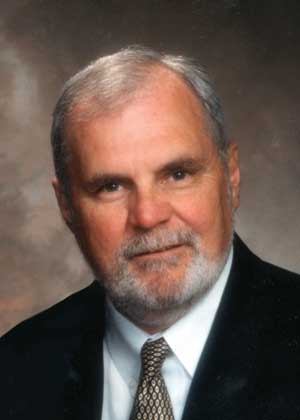
Examine VEETC Impact, Extend Blends Now
By Mike Bryan

ILUC Debate in Europe—The Saga Continues
By Robert Vierhout
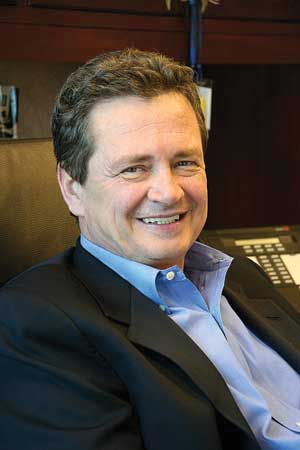
Fueling Freedom
By Tom Buis

Lessons from the Front Lines
By Nathan Kimpel

It's About the Message
By Susanne Retka Schill

Event Tackles Controversial Topics
By Rona Johnson

EERC's Biomass '10 Workshop Discusses Breakthrough Technologies
By Chris Zygarlicke

Global Biodiesel Production: A Different Perspective
By Klaus Ruhmer

Biodiesel Interest High in Boston
By Ron Kotrba
Featured

Weathering the VEETC Storm
By Holly Jessen
Contradictory reports and new policy proposals are causing turbulence in efforts to extend the ethanol blenders tax credit, set to expire in December.

Unlocking the Power of Corn
By Holly Jessen
Fractionation—long considered an interesting but expensive add-on—may finally gain traction in the ethanol industry.

Fueling a New Market
By Kris Bevill
A mid-Atlantic company may have developed a solution for two of ethanol producers' main problems: natural gas usage and how to increase demand for their product.
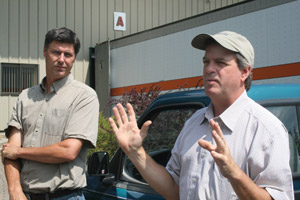
Cheers to Biomass in Boston
By Anna Austin and Lisa Gibson
Woody biomass has been a controversial topic in the Northeast U.S., but speakers and attendees at the Northeast Biomass Conference & Expo demonstrated unwavering confidence in the future success of the industry.
An Algal Dream Team
By Lisa Gibson
The U.K.'s Carbon Trust has assembled a 'dream team' to collaborate on algae research and knock down the barriers blocking a commercial algal biofuel industry.
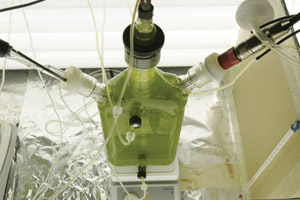
A New Start
By Lisa Gibson
Ten years after NREL's Aquatic Species Program was shut down, a similar initiative began and now is thriving in its algae research, which includes the evaluation of CO2 recycling.
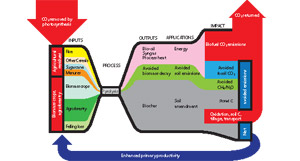
Beyond the Hype
By Anna Austin
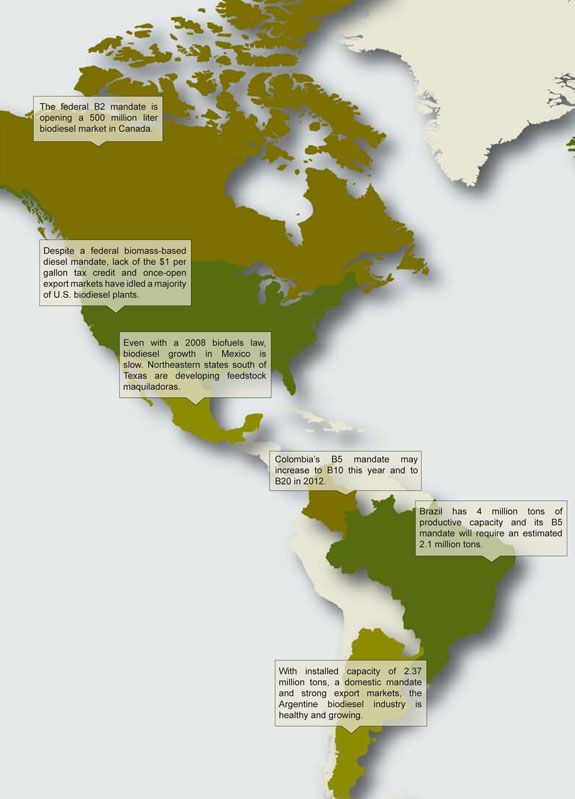
Global Biodiesel Production and Market Report
By the Biodiesel Magazine Editorial Staff
Discover what activities are taking place in the biodiesel sector around the world.

Biodiesel-Powered Jetcar
By Ron Kotrba
A 10,000-horsepower Jetcar running on B20 going 400 miles per hour beating airplanes in races all over the country is a fantastic tool to promote the high-performance nature of biodiesel.
Contributions

CO2 Increasingly Important to Ethanol
By Sam Rushing
Carbon dioxide must be properly developed economically in order to yield the greatest return, while the implications for an ever-warming globe and the ultimate reduction of greenhouse gas emissions must also be considered.

Patenting Carbon Credit Trading: Dodging Certainty
By Paul Craane
2010 has been a year of uncertainty for the future of carbon credit trading. Optimism that the administration would push for an energy bill with a comprehensive national market-based compliance program has faded, while the sale of the first voluntary trading program in the U.S. for all six greenhouse gases, suggests a sagging commitment to a voluntary carbon trading market.


